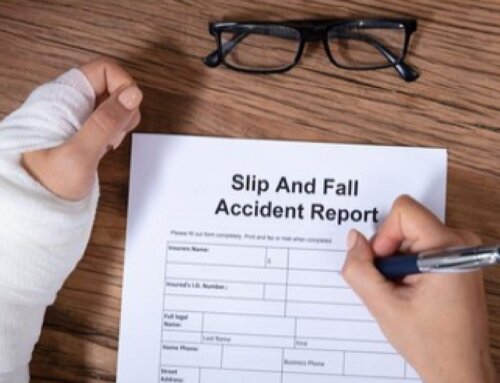All personal injury claims have a time limit on how long you can leave it before bringing a claim to court. The period between the accident or incident and making a claim is known as ‘the limitation period’.
What is the difference between “bringing” a claim to court and having a claim “issued “at court?
“Bringing” a claim – means getting your claim papers to court, either by taking them there or sending by post.
“Issuing” a claim is completed when the court staff check the paperwork and stamp the relevant form.
For the purposes of the Limitation Act 1980, the ordinary time limit for bringing actions (and therefore stopping the limitation period from running) is the date the papers ‘were brought ‘ to court. The claim may only be issued some days later, but for limitation purposes, this is of no relevance. (Make sure you include the fee for issuing the claim, too, or else!)
How long after an accident do I have to bring my personal injury claim?
The Limitation Act 1980, s 11 sets out the rules which advise how long you have to formally start a personal injury claim or lose your right to claim at all.
In a nutshell, the rule is that you have a three year period in which to bring a claim starting from:
- The date of the incident which caused you to get injured or ill, or
- The date you gained knowledge
The first part of the rule is relatively easy to understand.
If say, you are an adult and were involved in a road accident, e.g. you got knocked down as a pedestrian by a speeding car, and you broke your leg, you have three years from the date of the accident to bring your claim.
So, this section of the rule requires you, an injured adult, within three years of the accident to:
- Go through the process of starting a claim informally (without issuing proceedings) and settle it by negotiation with the defendant’s insurers or solicitors before the limitation period runs out, or
- Alternatively, start the claim informally, attempt to negotiate a settlement, and if you don’t manage to do so, ensure that you bring your claim to court before the limitation period expires.
You do not need to have had the case heard at court before limitation runs out. You simply need to have started the court process.
So far, so good.
What the second part of the rule means when it talks about a ‘date of knowledge’ is not as easy to understand. Therefore the following section is devoted to the concept of ‘date of knowledge’in limitation cases.
What is meant by date of knowledge?
In certain circumstances, it would be unfair on the innocent victim of an accident if the time limit for bringing a compensation claim always started to run from the date of the incident, which caused their pain and suffering.
There are situations where the injured person doesn’t become injured or ill until some time after the event that caused their injury.
Alternatively, there are situations where the injured party doesn’t realise that the physical problems they are experiencing relate to an incident that could conceivably have happened a year, two years or forty years ago.
It is easier to illustrate all of this, using hypothetical circumstances as examples:
- Whilst driving your car, you are stationary at traffic lights when another vehicle runs into the back of yours. You only feel shaken up at the time, but several weeks after the accident, you develop concussion.
- You used to work on the docks and regularly had to unload bags of asbestos from the ships that came into port. Years after you have retired, you notice you are becoming breathless, have a persistent cough and suffer from chest pains. On examination, your doctor tells you you have asbestos disease related to your work forty years ago.
- You undergo a knee replacement operation that appears to go well, but you develop pain over time, which you hope will go. It doesn’t, and eventually, you get it checked over by a consultant who tells you that the surgeon who carried out the knee replacement surgery appears to have been negligent.
- The first example is of a personal injury sustained in a road traffic accident; the second is an asbestos disease case, and the final example is a case of medical negligence. The ‘date of knowledge’ issue crops up more frequently in industrial disease claims and medical negligence claims than it does in road traffic accident claims, accident at work claims or public liability accident claims.
- The second example illustrates how asbestos disease workers were exposed to asbestos decades before the effects of that exposure appear (as they still do to this day) in the form of asbestos disease symptoms.
Often, the earliest possible date of knowledge for former asbestos workers is when they start to suffer breathlessness, a persistent dry cough, chest pains, or any of the other symptoms associated with an asbestos illness. It’s more likely that their date of knowledge only comes on the day they receive a diagnosis of asbestos disease from their doctor.
- With the third example, the knowledge that your continuing knee problems are a consequence of negligent knee surgery may come when:
i) your pain continues to get worse, and you start to think something must have gone wrong with your knee replacement surgery, or
ii) you get the second consultant’s prognosis that you continue to have knee problems because the replacement surgery was botched.
For these reasons, in some personal injury, medical negligence and asbestos disease cases, the time limit for bringing a claim will be three years from the injured victim’s date of knowledge.
According to s14 of the Limitation Act 1980, date of knowledge is defined as the date the would-be claimant found out:
(a) that the injury in question was significant; and
(b) that the injury was attributable in whole or in part to the Act or omission which is alleged to constitute negligence, nuisance or breach of duty; and
(c)the identity of the defendant; and
(d) if it is alleged that the act or omission was that of a person other than the defendant, the identity of that person and the additional facts supporting the bringing of an action against the defendant;
and knowledge that any acts or omissions did or did not, as a matter of law, involve negligence, nuisance or breach of duty is irrelevant.
If that sounds complicated, it is.
As you can probably see, the whole law surrounding the issue of ‘date of knowledge’ can be highly complicated. Should you find yourself in a position where limitation is becoming an issue in a claim you are or are thinking of pursuing, get experienced legal advice from a firm of specialist personal injury solicitors like Mooneerams of Cardiff.
What’s the time limit for bringing a claim on behalf of a child?

Their parent(s), other close relatives, or carer(s) can bring the claim on behalf of the injured child. In the legal proceedings, those bringing the claim for the child are called a ‘litigation friend’.
The three-year period only starts when the child reaches their 18th birthday, and accordingly, the litigation friend has until the child’s 21st birthday to bring the claim.
In most cases, the litigation friend will have started a claim well before the child becomes an adult, but If they haven’t, from their 18th birthday onwards until just before they turn 21, the child is free to bring a claim of their own accord.
What is the time limit for bringing a claim for someone who lacks mental capacity?
- Where the injured person lacked mental capacity at the time of the accident, the three year period will only start to run when they regain mental capacity. So, if the person under a disability never regains capacity, the limitation period will not apply – it will never start. A litigation friend on behalf of the accident victim may bring court proceedings at any time.
- If the injured person regains capacity, even if it is only briefly, then the three-year limitation period runs from the day they regained capacity.
- It is important to note that where a person possesses relevant mental capacity at the time of the accident, the limitation period starts on that date even if capacity is lost in the future.
What is the position on limitation in the case of bringing a claim for someone who has died?
In respect of a person who dies before their three year limitation period ends, their estate has an extra three years to bring a claim on the deceased’s behalf, and this starts on
- The date of death, or
- The date of the deceased’s date of knowledge, whichever is later.
Are there any exceptions to the limitation period being three years in personal injury cases?
- If an accident happens abroad but the claim is to be brought in the courts of England and Wales, the limitation period that applies may be that of the country where the accident occurred, in which case the limitation period could be less than three years
- For accidents on aircraft or in an airport, the limitation period is only two years, not three.
- If the accident happens at sea, the limitation period is two years – worth bearing in mind if you suffer personal injury in an accident on a cruise ship holiday.
What happens if you miss the limitation period?
If you fail to bring a claim to court before the three-year period runs out, you will have ‘missed limitation’. The result is that you will be time-barred (or statute-barred), which means you can’t claim at any time in the future.
But can’t you appeal if your claim is time-barred?
We must go back to the Limitation Act to find out if we have a chance of being allowed to bring our claim ‘out of time’.
Section 33 of the Act gives the court the discretion to allow a court case to be brought after the relevant limitation period has passed, where it thinks it would be fair to let the claim go ahead.
To decide this, the court has to weigh up how much the claimant would be prejudiced if the claim doesn’t go ahead against how much the defendant would be prejudiced by allowing it to go ahead.
In reality, courts rarely extend the limitation period.
Issues surrounding limitation are often complex. If you have a potential limitation issue with a claim you want to bring, you must get specialist legal advice from personal injury solicitors.
At Mooneerams we have over twenty years of experience dealing with personal injury claims of all types. Our team is experienced in dealing with matters where limitation has or may become an issue and cases where clients have been let down by their previous solicitors regarding limitation issues.
Call Mooneerams now on 029 2048 3615 to talk to one of our experienced personal injury lawyers about any limitation issues. Our initial advice is free of charge. If we offer to take on a claim for you, in most cases, we can fund it utilising a No Win No Fee agreement.









